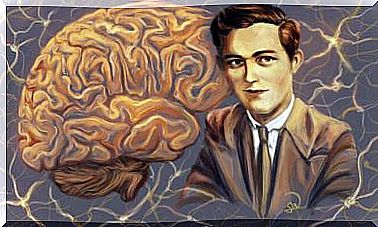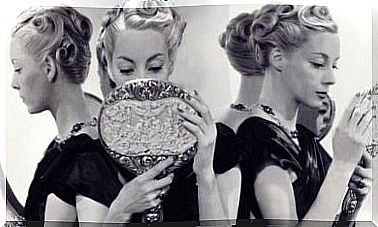René Spitz And The Mother-child Relationship During Childhood

René Spitz was an American psychoanalyst who made very interesting contributions on the subject of early relationships, specifically between the mother-child relationship.
At first, Spitz studied medicine and when he discovered the work of Sigmund Freud, he changed his course towards the universe of psychoanalysis. In fact, during his time of study, Spitz met with Freud to analyze his personality, since he wanted to delve deeper into himself in order to become a good psychoanalyst.
Although his career was interrupted, due to the First World War, four years after it ended, he resumed it. His goal was to become a teacher. He wanted to share the knowledge he had acquired about himself to help others get to know themselves and become psychoanalysts. However, all the essence of his work was concentrated in an essential stage in the life of the human being: childhood.
René Spitz, a highly esteemed teacher
In 1926, Spitz became a member of the Viennese Psychoanalytic Society. Four years later, he continued the research he was conducting by joining a new society, the German Psychoanalytic Society. It was not until 1932 when he began to work as a teacher in Paris.
With the passage of time, his investigations did nothing but advance. However, it was after the war and his move to America that he became interested in the mother-child relationship during childhood.
In fact, after being hired as a professor at the University of Colorado, he began working with orphaned children to answer questions such as: How does a child feel who does not have parents and who has not had a family (as described understand this concept)?

Anaclitic depression and hospitalism
The investigations that René Spitz carried out allowed the birth of two new concepts:
- Anaclitic depression.
- Hospitalism.
Anaclitic depression is a term that refers to the depressive picture that children present during the first months of life. This is due to the prolonged separation from the mother and the lack of emotional care that this situation entails.
On the other hand, hospitalism refers to the urgent admission that a mother may require and that forces her to separate from her child. This situation could cause an anaclitic depression in babies, a term that we have already covered.
In addition to all the studies he carried out, René Spitz also made reports and publications in renowned magazines related to his field of research, such as The Psychoanalytic Study of the Child . His work was so popular that he was named president of the Denver Psychoanalytic Society in 1962.
As we can see, René Spitz made very important contributions to treat the mother-child relationship during childhood. Likewise, he was the first author to assess the presence of psychiatric problems in children, since so far these were only taken into account in the adult population.
As a curiosity, we can say that his work complements perfectly with that of Bowlby. For this reason, in many publications these two authors are discussed together.
The mother-child relationship according to René Spitz
René Spitz investigated how early separation from the mother affected the first months of life in children. The psychoanalyst concluded that the lack of protection, affection and attachment could lead to death due to the anaclitic depression that some children could suffer.
So what happened to children who were orphans or whose mothers separated from them and cared for their needs? Apparently, as they got older they became more violent, insecure, cold and distant with others.
In addition, Spitz believed that these children were very likely to reproduce the behavior that their mothers had with their children. For this reason, the time that can be dedicated to the little ones was very important to him. In fact, he left us the following sentence:

As we can see, meeting Freud was a before and after in René Spitz’s life. The beginning of a life dedicated to psychoanalysis and the investigation of the relationship between children and their mothers during infancy. In fact, their work continues to be consulted today by many researchers.









